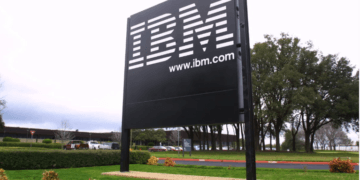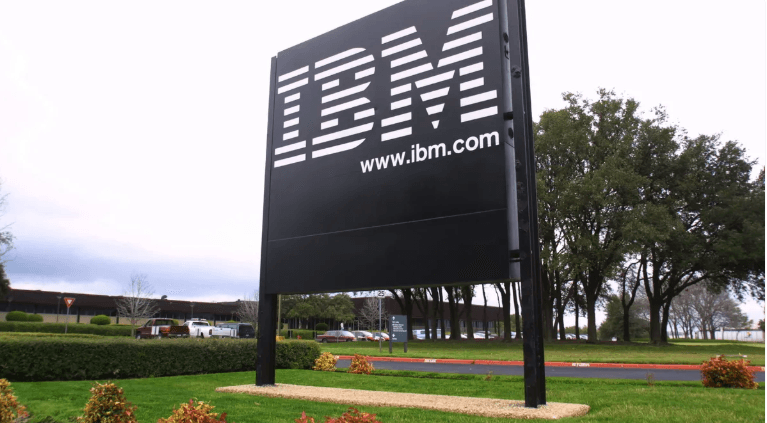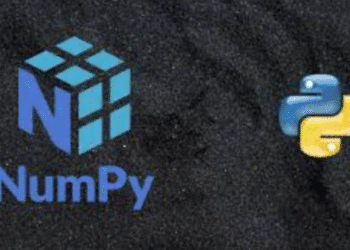DBT Bureau
Pune, 14 Nov 2024
IBM revealed significant advancements in its quantum hardware and software, enabling the execution of complex algorithms on IBM quantum computers with unprecedented scale, speed, and accuracy.
IBM Quantum Heron, the company’s most performant quantum processor to date and available in IBM’s global quantum data centers, can now leverage Qiskit to accurately run certain classes of quantum circuits with up to 5,000 two-qubit gate operations. Users can now use these capabilities to expand explorations into how quantum computers can tackle scientific problems across materials, chemistry, life sciences, high-energy physics, and more.
This continues the achievement of milestones on IBM’s Quantum Development Roadmap, and further advances the era of quantum utility as IBM and its partners progress towards quantum advantage and IBM’s advanced, error-corrected system planned for 2029.
The combined improvements across IBM Heron and Qiskit can execute certain mirrored kicked Ising quantum circuits of up to 5,000 gates, which is nearly twice the number of gates accurately run in IBM’s 2023 demonstration of quantum utility. This work further extends the performance of IBM’s quantum computers beyond the capabilities of brute-force classical simulation methods. The 2023 utility experiment, published in Nature, demonstrated the speed results in terms of time to process, per data point, which totaled 112 hours. The same experiment, using the same data points, was run on the latest IBM Heron processor and can be completed in 2.2 hours, which is 50 times faster.
IBM has further evolved Qiskit into the world’s most performant quantum software to allow developers to more easily build complex quantum circuits with stability, accuracy, and speed. This is evidenced by results gathered and published on arXiv.org using Benchpress, an open-source benchmarking tool which IBM used to measure Qiskit across 1,000 tests, largely from third parties, and found it to be the highest-performing, most reliable quantum software development kit against other selected platforms.
“Advances across our hardware and Qiskit are enabling our users to build new algorithms in which advanced quantum and classical supercomputing resources can be knit together to combine their respective strengths,” said Jay Gambetta, Vice President, IBM Quantum. “As we advance on our roadmap towards error-corrected quantum systems, the algorithms discovered today across industries will be key to realizing the potential to solve new problems realized through the convergence of QPUs, CPUs, and GPUs.”
New Software Tools to Advance Development of Next-Generation Algorithms
The IBM Quantum Platform is further expanding options with new Qiskit services such as generative AI-based capabilities and software from IBM partners, allowing a growing network of experts across industries to build next-generation algorithms for scientific research.
This includes tools such as the Qiskit Transpiler Service to power the efficient optimization of quantum circuits for quantum hardware with AI; Qiskit Code Assistant to help developers generate quantum code with IBM Granite-based generative AI models; Qiskit Serverless to run initial quantum-centric supercomputing approaches across quantum and classical systems; and the IBM Qiskit Functions Catalog to make services available from IBM, Algorithmiq, Qedma, QunaSys, Q-CTRL, and Multiverse Computing for capabilities such as reducing the performance management of quantum noise, as well as abstracting away the complexities of quantum circuits to simplify the development of quantum algorithms.
“Algorithmiq’s tensor error network mitigation algorithm (TEM), available through the IBM Qiskit Functions Catalog, offers state-of-the-art error mitigation for circuits at utility scale by leveraging steps towards quantum-centric supercomputing approaches, delivering the fastest quantum runtime we’ve yet offered to users,” said Matteo Rossi, CTO, Algorithmiq. “With the recent advancements we’ve made to combine quantum computers with post-processing on GPUs, we are pushing TEM’s capabilities to support circuits with up to 5,000 entangled quantum gates – a milestone for scaling quantum experiments and tackling complex problems. This could open the door to quantum simulations and computations previously constrained by noise limitations.”
“Progress across IBM quantum hardware and software is instrumental to Qedma’s mission to build services that will allow our users to run the longest and most complex quantum circuits,” said Dorit Aharonov, Chief Scientific Officer, Qedma. “Combined with our own achievements in error mitigation, which we offer via Qedma’s service in the IBM Qiskit Functions Catalog, we look forward to furthering our mission of enabling global users to build algorithms with today’s quantum systems – and to achieve increasingly accurate results of scientific value.”
Qiskit Fuels Quantum and Classical Integration Towards Future of Computing
As the next evolution of high-performance computing, IBM’s vision of quantum-centric supercomputing aims to integrate advanced quantum and classical computers executing parallelized workloads to easily break apart complex problems with performant software, allowing each architecture to solve parts of an algorithm for which it is best suited. Such software is being designed to seamlessly and quickly knit problems back together, allowing algorithms to be run that are inaccessible or difficult for each computing paradigm on its own.
RIKEN, a national scientific research institute in Japan, and Cleveland Clinic, a leading academic medical center and biomedical research institution with an on-site and utility-scale IBM Quantum System One, are exploring algorithms for electronic structure problems that are fundamental to chemistry.
These initiatives represent the first steps towards quantum-centric supercomputing approaches to realistically model complex chemical and biological systems, a task historically believed to require fault-tolerant quantum computers.
Early examples of these types of workflows are methods based on parallel classical processing of individual samples from quantum computers. Building on prior techniques, such as QunaSys’s QSCI method, IBM and RIKEN researchers have performed sample-based quantum diagonalizations in quantum-centric supercomputing environments, which make use of quantum hardware to accurately model the electronic structure of iron sulfides, a compound present widely in nature and organic systems.
Now available as a deployable Qiskit service, this same technique is being leveraged by Cleveland Clinic to explore how it could be used to implement quantum-centric simulations of noncovalent interactions: bonds between molecules that are essential to many chemical, biological, and pharmaceutical science processes.
“This research is an example of what makes our research partnership successful – bringing together IBM’s next-generation technologies with Cleveland Clinic’s world-renowned expertise in healthcare and life sciences,” said Lara Jehi, MD, Chief Research Information Officer at Cleveland Clinic. “Together, we are pushing through traditional scientific boundaries using cutting-edge technology such as Qiskit to advance research and find new treatments for patients around the globe.”
“With our partners at IBM, we were able to leverage their advanced quantum computing electronic structure algorithm to study – for the first time – intermolecular interactions on the on-site IBM Quantum System One at Cleveland Clinic, which are important for potential future applications in drug discovery and design,” said Kennie Merz, PhD and quantum molecular scientist at Cleveland Clinic.
“The RIKEN Center for Computational Science (R-CCS) is conducting the Japan High-Performance Computing-Quantum (JHPC-Quantum) project, which aims to build a quantum-HPC hybrid computing platform by integrating our supercomputer, Fugaku, with an on-premises IBM Quantum System Two powered by an IBM Quantum Heron processor. In the era of quantum utility, we will strongly support the initiative’s goal of demonstrating quantum-centric supercomputing approaches by using our platform as a first step towards this new computing architecture,” said Mitsuhisa Sato, the director of Quantum-HPC Hybrid Platform Division, RIKEN Center for Computational Science.
Additionally, Rensselaer Polytechnic Institute is using Qiskit tools to take initial steps to build IBM’s first realization of quantum-centric supercomputing on a university campus. With performant software, RPI and IBM are aiming to successfully connect workloads across the AiMOS classical supercomputer and IBM Quantum System One, both located on RPI’s campus, into a single computational environment managed by a standard high-performance computing resource manager.
“Since unveiling IBM Quantum System One on the RPI campus earlier this year, we have taken steps toward another significant first by starting the work to link the quantum system and our AiMOS supercomputer,” said Martin A. Schmidt, Ph.D., president of RPI. “This moment is a testament to our longstanding partnership with IBM, and, like the pairing of quantum computing and supercomputing, our two institutions together will drive exciting breakthroughs in the years to come.”





















